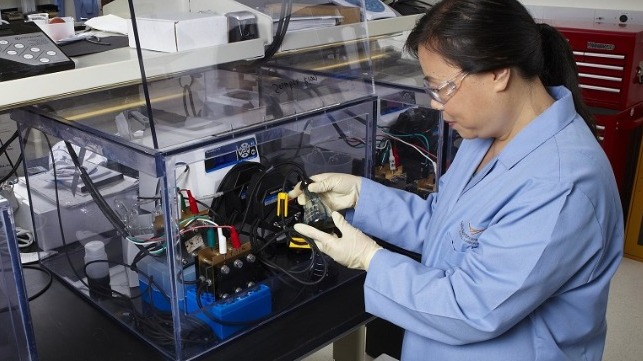ABS Looks Ahead to New Marine Battery Technologies

The American Bureau of Shipping (ABS) has released a new guide to novel and emerging battery technologies, including metal-air, redox flow and solid-state designs.
"As hybrid and all-electric vessels become more common as a means of reducing emissions, improved battery technology will be a requirement to ensure efficient and effective operation of environmentally safe systems,” said Patrick Ryan, ABS Senior Vice President of Global Engineering and Technology.
He added that with so many developing technologies relying on a high-power, high-energy source of electricity, it is imperative that new battery technologies are developed and implemented.
The push for decarbonization in the shipping industry has made battery systems quite valuable. Reducing fuel consumption through the use of hybrid systems can aid greatly in reducing emissions, helping the industry towards its target of net-zero CO2 by 2050.
Currently over 150 ships are operating with batteries on board, with another 100 battery-equipped vessels under construction. However, today’s batteries largely serve either as backup power, providing the energy needed for short voyages, or for ships sailing closely to populated areas. They are mostly found on board ferries, tugs and other small or specialized vessels. Batteries are not yet suitable for providing the required power for long voyages.
Currently, the industry's battery users rely on lithium-ion (Li-ion) batteries, but their limited energy capacity and safety concerns have prompted investments in R&D for next-generation energy storage options. Higher capacity batteries would allow for more efficient hybrid vessels and could potentially make all-electric vessels more viable.
“These potential alternatives to Li-ion batteries are in different stages of research, but they may show promise for battery systems to become more practical and widespread in maritime applications in the future,” the authors wrote.
The battery alternatives considered in the study all show strong potential - but also areas that would need improvement. Metal-air batteries have a very high energy density, but the best available technology has a short lifespan in service. Vanadium redox flow batteries are very durable, and they are easy to scale up for big applications, but they take up a lot of space and have a high up-front cost.
Solid-state lithium batteries - which have a solid electrolyte and no liquid components - are more compact and have a reduced fire risk when compared with lithium-ion batteries. However, the current technology has a short service life, and more research will be required before it can be commercialized.
Top image: Redox flow battery testing, Pacific Northwest National Laboratory (PNNW file image / CC BY-NC-SA 2.0)
